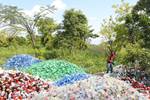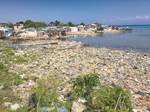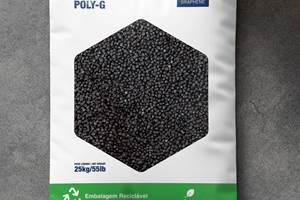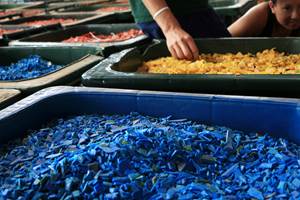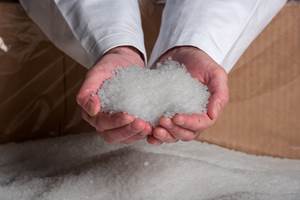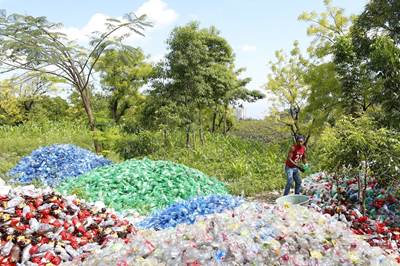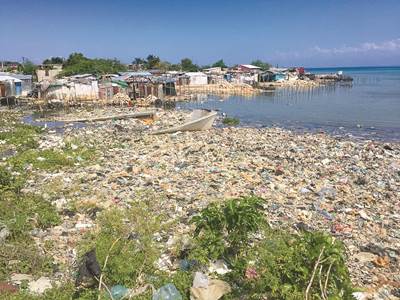Clothing Hangers Made from Ocean-Bound Plastics
New hanger made from 100% recycled plastic that is gathered from the ocean or intercepted before entering the ocean.
In 2018, I wrote an in-depth feature about the ocean-bound plastics supply chain, which covered the potential for the market as well as the difficulties to scale. However, since then, the usage of ocean-bound plastics continues to grow. HP incorporates ocean-bound plastics into Original HP ink cartridges. Atando Cabos is a company focused on ending the contamination of discarded fishing and marine farming gear from the coasts of Patagonia.
Most recently, I received a news release about an eco-design company using ocean-bound plastic to produce hangers.
(re)x is a company founded by Los Angeles-based designer Paulina Quintana. The company introduced a new hanger made from 100% recycled plastic that is gathered from the ocean or intercepted before entering the ocean. The (re)x hanger was named "Best in NY NOW Show" in the sustainability category by the New York chapter of the International Furnishings and Design Association.
"We need to change people's relationship to plastic," said (re)x CEO Quintana. "Our mission is to create sustainable solutions for everyday products and turn them into an opportunity to remove plastic waste from the environment. The environmental impact of discarded plastics is one of the most vexing issues we face. There are over 8 billion plastic hangers discarded every year along with over 8 million metric tons of plastics entering our oceans annually. Our new hanger represents an advancement in reducing the damage plastic is inflicting on our planet."
The (re)x founder ran her own international children's clothing brand for 13 years but was troubled by the sheer volume of waste created by plastic hangers that were discarded and bound for landfills. (re)x was born from the desire to reduce consumers' environmental footprint. Quintana engineered a solution by designing a 100% recycled hanger made from recovered ocean plastics.
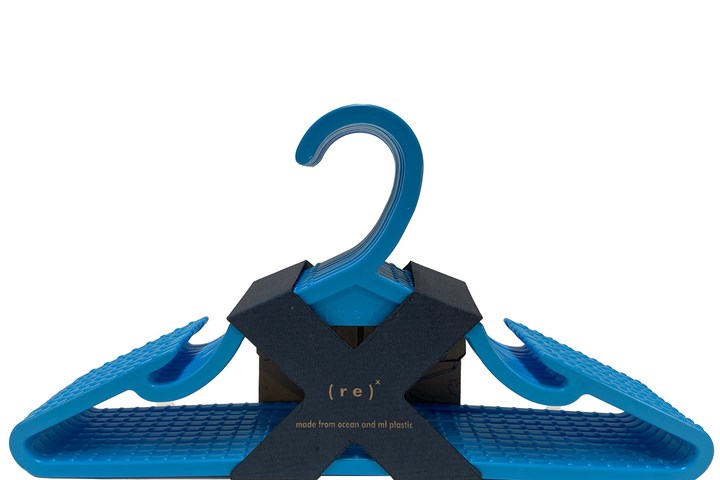
Hanger made from 100% recycled plastic gathered from oceans.
Raw materials for the (re)x hangers are sourced from beach clean-ups and local recycling efforts in South Africa, recovering plastics from the ocean and removing post-consumer and post-commercial plastics from the waste stream. The color of each hanger will feature slight variations over time, reflecting the variety of plastics collected. All the company's packaging is made from 100% recycled material and is 100% biodegradable, helping keep more plastic out of the ocean.
To manufacture the product, Quintana is partnering with Ocean Plastic Technologies (OPT), a South African manufacturing technology company. Ocean Plastic Technologies not only provides the raw materials and fabrication for (re)x 's hanger, but they also educate, train, and employ South African workers who have a desire to protect their environment.
OPT uses portable "micro recycling plants" that are deployed where storms and ocean currents churn up plastic along the shore. These self-contained, mobile manufacturing facilities allow OPT to access local communities quickly and efficiently to capture plastics from waterways or before they enter waterways and then recycle them for use in products like (re)x hangers. To date, the production of (re)x hangers has removed 3.3 tons of ocean and ocean-bound plastic waste.
"Paulina has incredible passion and determination to reduce the use of virgin plastic," said Oliver Nudds, managing director at Ocean Plastic Technologies. “Paulina's authenticity about the environment is a revelation and we bought right into her vision. Let's face it, everyone buys plastic hangers, but when made from recycled plastic they are the right hanger for today, and honestly the right hanger for the future. This is a hanger with a purpose. We are honored to help (re)x make a positive impact to reduce worldwide plastic waste."
"We have reengineered the hanger," Quintana said. "We increased the overall thickness by 50%, ensuring a significant improvement in durability and resistance to breakage." (re)x also increased the vertical strength of the pant bar to hold heavy garments without bending and added an integrated "fishhook-style" garment hook. A unique 'bridge' at the apex of the hanger completes the design to provide maneuverability in tight spaces packed with clothing.
Quintana aims to demonstrate to retailers and consumers alike that when it comes time to reorder hangers, they can use their purchasing decisions to protect the environment with a better designed, more durable, and more sustainable option. "When you consider that most every home, apartment and retail store have plastic hangers, we have a big challenge on our hands to change people's future buying patterns."
After a successful crowdfunding campaign on Kickstarter, (re)x has manufacturing underway in South Africa and is fulfilling purchase orders for immediate delivery. To date, the company has sold more than 1,000 hangers to high schools, colleges, and universities across North America.
This month, (re)x launched an e-commerce store on its website, allowing consumers to purchase the company's hangers online and have them shipped anywhere in the world.
Related Content
Gerdau Graphene Launches “First” Graphene-Enhanced PE Additive Masterbatch for Extruded Packaging and More
The company has also partnered with conglomerate Sumitomo Corp. for distribution of its graphene-enhanced masterbatches in Japan.
Read MoreAt NPE2024, Follow These Megatrends in Materials and Additives
Offerings range from recycled, biobased, biodegradable and monomaterial structures that enhance recyclability to additives that are more efficient, sustainable and safer to use.
Read MoreLatest Data on Bottled Water Shows Continued Strong Growth
Bottled water’s volume surpassed soft drinks for the first time in 2016 and has done so every year since.
Read More‘Monomaterial’ Trend in Packaging and Beyond Will Only Thrive
In terms of sustainability measures, monomaterial structures are already making good headway and will evolve even further.
Read MoreRead Next
Building an Ocean-Bound Plastics Supply Chain
Atando Cabos, working with partners ExxonMobil and Engel, is taking discarded fishing rope and transforming it into raw material to reincorporate into the production chain as long-term recyclable products.
Read MoreHP, Lonely Whale Discuss Scaling the Use of Ocean-Bound Plastic
Ellen Jackowski, global head of sustainability strategy and innovation at HP Inc., and Dune Ives, executive director at Lonely Whale, discuss developing the first global network of ocean-bound plastics supply chains.
Read MoreTrash as Value: Turning Ocean Waste Into Viable Products
So-called “ocean plastics” is a global problem, but a wide range of companies across the entire supply chain have put in the time, money and R&D efforts necessary to make capturing and converting the material into a sustainable business. But demand must follow.
Read More


